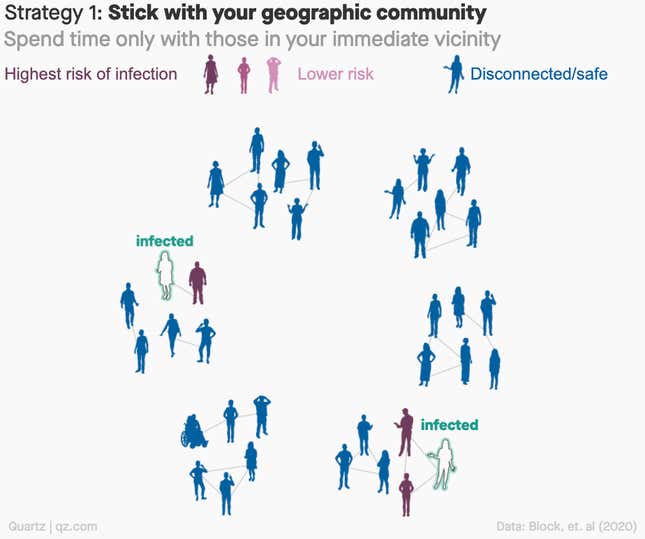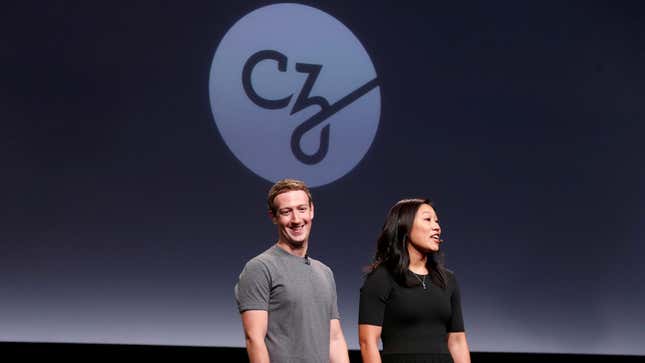Good morning, Quartz readers!
Here’s what you need to know
Beijing is fast tracking the Hong Kong security laws. The standing committee of the National People’s Congress began reviewing a draft of the legislation Thursday, with the law expected to pass within a month. Hong Kong unions are planning a referendum this weekend over a general strike in opposition, but they may not get the numbers they need. A continent away, Zambia is also reexamining its relationship with China.
Three losses Donald Trump doesn’t want you to focus on. The US president’s Thursday began with news that another 1.5 million Americans filed new unemployment claims last week. Then the Supreme Court ruled against Trump’s bid to end an Obama-era program protecting undocumented immigrants brought to the country as children. And finally, Facebook removed Trump campaign ads for containing Nazi symbols.
You know who’s not losing? E-commerce. Chinese social commerce startup Pinduoduo now has a market cap of $100 billion, more than double what it was worth at the beginning of 2020, while US food delivery company DoorDash confirmed a $400 million funding round that brings its valuation to around $16 billion. Not to be outdone, ByteDance announced an e-commerce division geared to its TikTok users.
But TikTok is under fire in India. It’s one of 52 China-linked apps Indian intelligence agencies have recommended the government block or advise against over data privacy concerns. Meanwhile, Chinese soldiers are alleged to have used much cruder weapons—iron bars studded with nails—against Indian soldiers in the recent fatal border clash.
Content deals are also heating up. Former NFL quarterback Colin Kaepernick has joined Medium’s board and will blog about anti-Black racism and civil rights. Following Wednesday’s news of an exclusive podcast deal with Kim Kardashian West, Spotify announced it will be the exclusive home for a series of podcasts based on DC comics characters. And if you’re looking for live music performances, try Twitch.
Visualizing a better social bubble
Everybody wants to see their friends and family while remaining as safe as possible. That’s why sociologist Per Block, who researches informal social networks and social mobility, used the Six Degrees of Kevin Bacon concept to help strategize safer socialization. Block has developed three different kinds of networks to help add layers of separation between individuals in a community—but you have to stick carefully to them. Here’s one strategy, check out the article to see the rest.

How we’re thinking about diversity
Longstanding concerns around race, money, and the workplace are finally receiving overdue attention. Here are a few ways we’re tackling the issues:
- Parsing the data. The number of Black-owned businesses fell by 41% from between February and April.
- Thinking differently. The history of Black management reveals an overlooked form of capitalism.
- Understanding the past. Ethiopia’s war against fascism helped inspire Black Americans, who then came to the country’s aid some forty years later.
- Appreciating creativity. Take a look back with design critic Ralph Caplan, who said that 1960s lunch counter protests were the era’s greatest design.
For Members: Putting private philanthropy to the test

Under normal circumstances, the Chan Zuckerberg Initiative (CZI) funds a range of projects to advance its many lofty ambitions, including ending all disease by 2100. But in March, CZI scrambled to redirect its patrons’ wealth to confront just one virus: SARS-CoV-2.
The saga of CZI’s Covid-19 lab illustrates the potential and power of private philanthropies to move scientific endeavors forward at lightning speed. Read about how Covid-19 is putting the power of private philanthropy to the test (✦ Quartz member exclusive) in our field guide on science’s great pandemic pivot.
✦ If funding projects is your thing too, why not become a member to see inside our lab. Here’s a seven-day free trial to get you started. ✦
You asked about the stock market
Why is the stock market doing so well despite job losses, production fallout, companies defaulting, etc.? And how long will this discrepancy continue until it bursts? —Cornelia
We’re with you, Cornelia. The fact that the major US indexes continue to make gains while the rest of the economy sputters and stalls can make it feel like investors are living in a parallel universe (✦). The puzzling phenomenon is happening elsewhere, too, with Indian stocks bouncing back even as the economy heads in the opposite direction.
A few reasons for the disconnect: Continued uncertainty has led many companies to suspend their earnings guidance, meaning investors are essentially flying blind. Also, stock prices are technically based on future cash flows, so investors are buying now in anticipation of recovery down the road. Global central banks have also flooded the zone (✦) with low interest rates and easy credit.
It’s hard to say how long this will go on. Even if rising Covid-19 case counts don’t force fresh lockdowns in the US, wary consumers—many still unemployed—aren’t likely to bring the economy back to pre-coronavirus levels anytime soon. And it’s likely only a matter of time before markets figure that out.
Surprising discoveries

Believe it or not, those two dots are the same color. Now scientists know why we see them differently.
Space piracy could ground a soccer megadeal. Saudi Arabia’s permissive attitude towards stealing sports broadcasts is complicating plans to buy Newcastle United.
A Victorian-era curiosity might be the answer to the Covid-19 elevator problem. But safety concerns remain.
Creative directors in fashion only last a few seasons. Profit growth starts to drop around the five-year mark—and then they’re out the door.
A Leonardo DiCaprio movie inspired a cyberstalking fiasco. High-level eBay employees took notes from 2008’s Body of Lies while terrorizing a married couple critical of the company.
Our best wishes for a productive day. Please send any news, comments, optical illusions, and elevator solutions to hi@qz.com. Get the most out of Quartz by downloading our app on iOS or Android and becoming a member. Today’s Daily Brief was brought to you by John Detrixhe, Dan Kopf, Liz Webber, and Max Lockie.